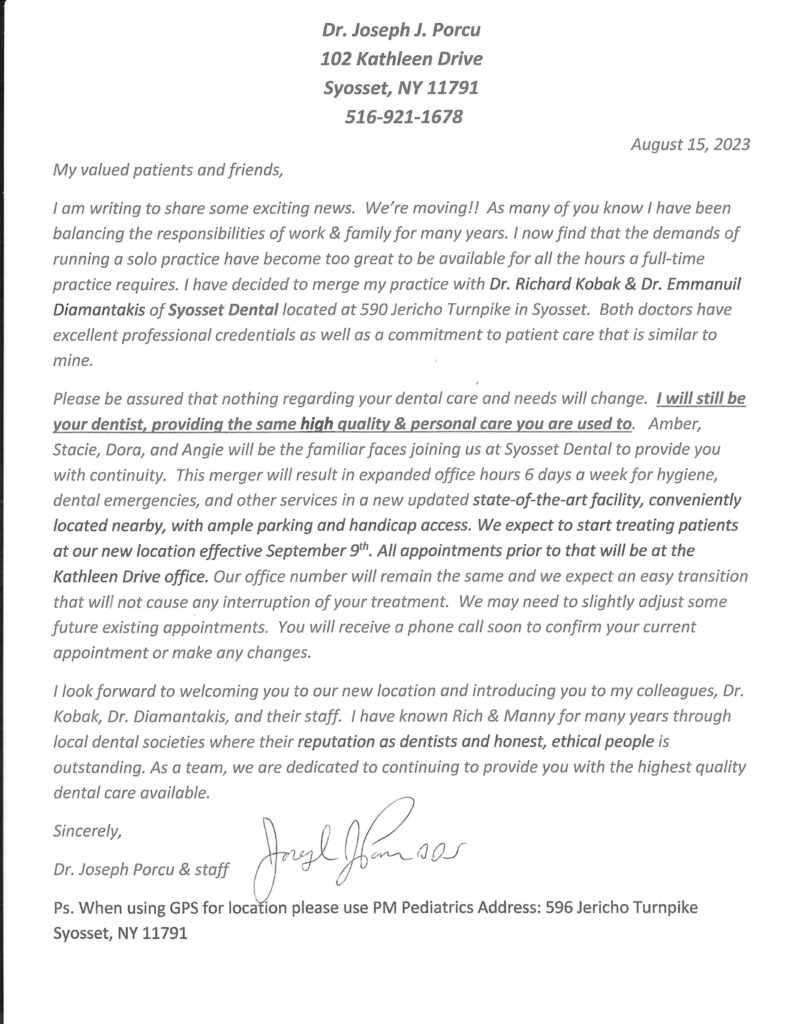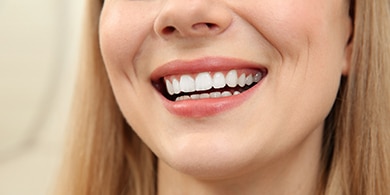 Most people know what snoring is, but few people can answer what causes the noise or why they snore consistently. The truth is that snoring is different for everyone and there is no single common cause of it. What is common, however, is the potential seriousness of a chronic snoring habit, and the fact that ignoring it is often a bad idea for those who experience it. (more…)
Most people know what snoring is, but few people can answer what causes the noise or why they snore consistently. The truth is that snoring is different for everyone and there is no single common cause of it. What is common, however, is the potential seriousness of a chronic snoring habit, and the fact that ignoring it is often a bad idea for those who experience it. (more…)
What No One Tells You About Bad Breath
 Some people have no problem telling you that your breath is bad, while others may try to drop hints so as not to cause you any embarrassment. Some people may offer a few friendly tips, like chewing gum, and others may never say anything, but limit their interactions with you to avoid having to deal with it. However, what no one but your dentist can tell you about your bad breath is why it’s bad, and what options you have for actually getting rid of it. (more…)
Some people have no problem telling you that your breath is bad, while others may try to drop hints so as not to cause you any embarrassment. Some people may offer a few friendly tips, like chewing gum, and others may never say anything, but limit their interactions with you to avoid having to deal with it. However, what no one but your dentist can tell you about your bad breath is why it’s bad, and what options you have for actually getting rid of it. (more…)
Dental Things that Are More Concerning as You Age
 The specific concerns that your smile faces depend on a variety of factors. For instance, the quality of your dental hygiene routine over the years, the presence of existing dental issues, and systemic conditions that are related to poor oral health can all become more prominent as time goes on. Fortunately, caring for your smile and addressing your risks of such issues isn’t necessarily more difficult. Even as you age, proper care and maintenance can help you maintain your healthy, natural smile and prevent dental health risks from becoming even bigger threats. (more…)
The specific concerns that your smile faces depend on a variety of factors. For instance, the quality of your dental hygiene routine over the years, the presence of existing dental issues, and systemic conditions that are related to poor oral health can all become more prominent as time goes on. Fortunately, caring for your smile and addressing your risks of such issues isn’t necessarily more difficult. Even as you age, proper care and maintenance can help you maintain your healthy, natural smile and prevent dental health risks from becoming even bigger threats. (more…)
What Gum Disease Has to Do with American Heart Month
 Every February, the American Heart Association sponsors American Heart Month to help raise awareness of one of the deadliest chronic conditions, heart disease. Though it may seem unrelated, preventing or treating gum disease can play a significant role in taking care of your cardiovascular health. Patients who exhibit severe gum disease are at higher risks of heart disease and other related conditions, thanks mainly to the inflammation related to untreated gum disease. Today, we take a look at that connection, and why healthy gums are a part of heart disease awareness. (more…)
Every February, the American Heart Association sponsors American Heart Month to help raise awareness of one of the deadliest chronic conditions, heart disease. Though it may seem unrelated, preventing or treating gum disease can play a significant role in taking care of your cardiovascular health. Patients who exhibit severe gum disease are at higher risks of heart disease and other related conditions, thanks mainly to the inflammation related to untreated gum disease. Today, we take a look at that connection, and why healthy gums are a part of heart disease awareness. (more…)
What Snoring Could Mean, and How to Stop
 Snoring isn’t uncommon, but many people who do it don’t realize that it could be an unhealthy habit. Besides depriving your partner of much-needed sleep, the mechanisms that cause you to snore can also place undue strain on your cardiovascular and systemic wellbeing. Because it is often caused by an irregularity with oral tissues blocking the airway, your dentist may be able to help you stop snoring. He can also help you determine if your snoring is an indication of a more serious problem, such as obstructive sleep apnea (OSA) and recommend an appropriate course of treatment. (more…)
Snoring isn’t uncommon, but many people who do it don’t realize that it could be an unhealthy habit. Besides depriving your partner of much-needed sleep, the mechanisms that cause you to snore can also place undue strain on your cardiovascular and systemic wellbeing. Because it is often caused by an irregularity with oral tissues blocking the airway, your dentist may be able to help you stop snoring. He can also help you determine if your snoring is an indication of a more serious problem, such as obstructive sleep apnea (OSA) and recommend an appropriate course of treatment. (more…)
How Often Do You Brush Your Teeth When You’re Sick?
 This time of year is notorious for illnesses from the common cold to the influenza virus. In fact, the Centers for Disease Control (CDC) and Prevention officially refer to this time of year as “the flu season,” and this year it started even earlier than usual. When you’re afflicted with influenza-like symptoms, such as fever, bodyaches, coughing, and many more, rising out of bed can seem like an Olympian’s challenge. Accomplishing routine daily tasks once you’ve risen out of bed, including brushing and flossing your teeth, can often prove impossible. However, if you are still able to rise to use the restroom, you still have opportunities to care for your dental health. Syosset dentist, Dr. Richard Kobak, explains why you should take advantage of those opportunities every time they arise to help protect your dental health while you’re sick.
This time of year is notorious for illnesses from the common cold to the influenza virus. In fact, the Centers for Disease Control (CDC) and Prevention officially refer to this time of year as “the flu season,” and this year it started even earlier than usual. When you’re afflicted with influenza-like symptoms, such as fever, bodyaches, coughing, and many more, rising out of bed can seem like an Olympian’s challenge. Accomplishing routine daily tasks once you’ve risen out of bed, including brushing and flossing your teeth, can often prove impossible. However, if you are still able to rise to use the restroom, you still have opportunities to care for your dental health. Syosset dentist, Dr. Richard Kobak, explains why you should take advantage of those opportunities every time they arise to help protect your dental health while you’re sick.
While You’re Away…
Even when you’re healthy, bacteria grow and collect inside your mouth to form the sticky biofilm known as plaque. Many of these oral bacteria are the source of destructive oral health issues, including tooth decay and gum disease. Brushing and flossing your teeth helps control plaque buildup and inhibit bacterial gathering, reducing your risk of developing oral health issues. When you’re sick with the cold, flu, or any other systemic illness, bacteria thrive under your distracted immune system, increasing bacteria’s potency and ability to proliferate. You may not feel like brushing your teeth when you’re sick, but if you neglect to, then bacteria and plaque will increase faster than normal, and your oral health will face a greater risk than normal, and in much less time. (more…)
Syosset Dentist Explores the Continuing Damage of Gum Disease
 As your eyes are the windows to your soul, so too is your mouth the window to your body. The food you eat, the beverages you consume, and much of the air that you breathe all pass through your mouth before entering your body. There should be little surprise, therefore, to learn that the health issues affecting your mouth can pose a risk to your physical health, as well, if not attended to quickly. To remind you of the importance of maintaining a clean and healthy mouth, Syosset dentist, Dr. Richard Kobak, explains how gum disease can leave its legacy on your systemic health.
As your eyes are the windows to your soul, so too is your mouth the window to your body. The food you eat, the beverages you consume, and much of the air that you breathe all pass through your mouth before entering your body. There should be little surprise, therefore, to learn that the health issues affecting your mouth can pose a risk to your physical health, as well, if not attended to quickly. To remind you of the importance of maintaining a clean and healthy mouth, Syosset dentist, Dr. Richard Kobak, explains how gum disease can leave its legacy on your systemic health.
Gum Disease and the Oral-Systemic Connection
The majority of possible oral health problems, including tooth decay and gum disease, begin with the formation of oral bacteria into dental plaque. As plaque grows, its bacteria grow stronger and more capable of inflicting damage on your teeth and gums. When they accumulate along your gumline, these bacteria release toxins that harm your gum tissue and cause it to separate from your teeth. The destructive power of gum disease stems from the inflammation that these bacteria elicit from your immune system. (more…)











